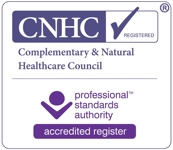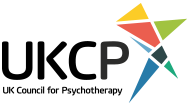The word depression is often used to describe the feeling of being sad or fed up which are a normal reaction to stressful or challenging situations. These feelings can last for a week or two, but then recede without having a lasting affect on your life. However, with true depression, the individual experiences low mood and other symptoms such as disturbed sleep, fatigue, change in appetite, poor concentration, restlessness, irritability, feelings of worthlessness, helplessness and pessimism or thoughts of death or suicide every day for at least two weeks, with the symptoms interfering with day to day activities. It is thought that as many as 10% of the population may be suffering with depression to some extent. Very often, you may no idea why you feel so low and may feel too embarrassed to seek help, hoping that the feelings will recede at some time. This probably means that you suffer for longer that need be.
There are many different types of depression including:
Major depression is the most severe form of depression as more symptoms are present at the same time compared to other forms of depression. It is usually diagnosed when five or more of the symptoms have been experienced together for at least two weeks. This period of depression may only be experienced once during a person's life, however, it is more likely that there will be other episodes.
Dysthymic disorder is not as severe as major depression with individuals experiencing fewer and less severe symptoms, although they are constant and can last for several years. Dysthymic disorder can develop in early life, with suffers believing that it is how everyone feels.
Bipolar disorder (also known as manic depression) can cause sufferers to experience severe swings of mood between intensely low and intensely elevated. The differing periods are known as either manic episodes (increased energy, high mood, irritability, racing thoughts, lack of concentration, fast talking, denial, little need for sleep, or feelings of super human powers) or depressive episodes (extreme sadness, fatigue, disrupted or extended sleep, change in appetite, lack of interest, helplessness or thoughts of death or suicide).
Postnatal depression usually occurs within a week of giving birth and is experienced by as many as 15% of mothers. Symptoms are very similar to other types of depression but can also include constant crying, feeling rejected by family, friends or even the baby and can range from fairly mild to a severe disorder called postnatal psychosis.
We can help to identify and gain insight into the underlying causes of your depression and help to change your perception of the cause and release any unwanted emotion.We can also help you to regain control of the situation by recognising and understand inappropriate or unhelpful responses and habitual behaviours and by identifying more beneficial coping strategies including teaching relaxation and visualisation techniques.




